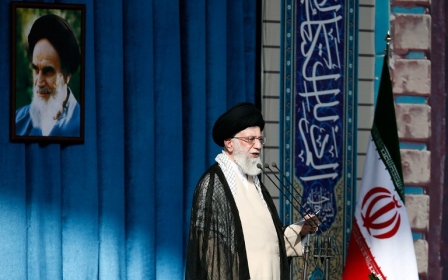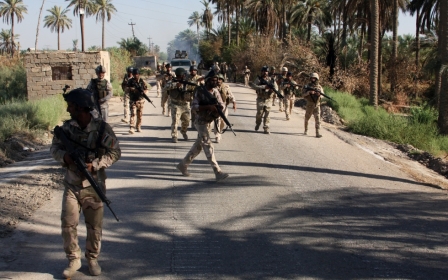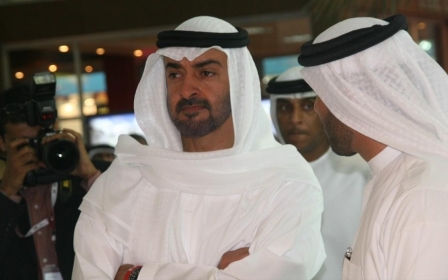US 'not serious' in fight against IS: Iran

Iran accused the United States Sunday of not taking the threat from Islamic State militants in Iraq and Syria seriously, and charged that US aid had previously helped the militants.
Foreign Minister Mohammad Javad Zarif levelled the accusations despite an expanding US air campaign in Iraq since 8 August that provided key support in relieving a militant siege of a Shiite Turkmen town north of Baghdad late last month.
Iran and the United States have a shared opposition to IS, which controls a swathe of both Iraq and neighbouring Syria, but both governments deny cooperating militarily against the militants.
"There is still no serious understanding about the threat and they (the United States) have as yet taken no serious action," Zarif was quoted as saying by Iran's Mehr news agency.
"They have helped (IS) in Syria in different ways," he added, alluding to support that the United States has provided to some rebel groups fighting President Bashar al-Assad's forces.
Iran has been Assad's main ally since a revolt against his rule erupted in 2011, rapidly spiralling into a civil war in which at least 191,000 people have been killed, according to the United Nations.
Shiite Iran has also provided military advisers to the Shiite-led government in Baghdad to assist its efforts to win back territory north and west of the capital that it lost to a lightning offensive spearheaded by the militants in June.
On Sunday, the United States expanded its month-long air campaign in Iraq, launching strikes against IS fighters in the country's Sunni Arab heartland around a strategic dam on the Euphrates River. IS has repeatedly tried to capture the dam from government troops and their Sunni militia allies.
Although Tehran and Washington have denied cooperation in Iraq, State Department spokeswoman Marie Harf said Friday that the US was "open to engaging" with Iran, as it has on select issues in the past, notably on Afghanistan in late 2001.
"But we will not be coordinating our action together," she added.
Despite his criticism of Washington, Zarif said Tehran believed in the need for international cooperation to tackle the IS threat.
"We were aware of this danger from the beginning and we helped the Iraqi people, whether Shiite, Sunni or Kurdish and we managed to prevent this threat from spreading," he said.
"This danger threatens the entire region and requires international cooperation."
Iran, which shares a large section of its border with Kurdish controlled areas of Iraq, was the first country to provide weapons and equipment to Kurdish Pershmerga fighters, according to Kurdish Regional Government President Masoud Barzani.
While there have been reports of Iranian forces fighting in Iraq, including state media reports that an Iranian pilot was killed while fighting in Iraq in July, Zarif has repeatedly denied that Iran has troops in the country.
Middle East Eye propose une couverture et une analyse indépendantes et incomparables du Moyen-Orient, de l’Afrique du Nord et d’autres régions du monde. Pour en savoir plus sur la reprise de ce contenu et les frais qui s’appliquent, veuillez remplir ce formulaire [en anglais]. Pour en savoir plus sur MEE, cliquez ici [en anglais].




